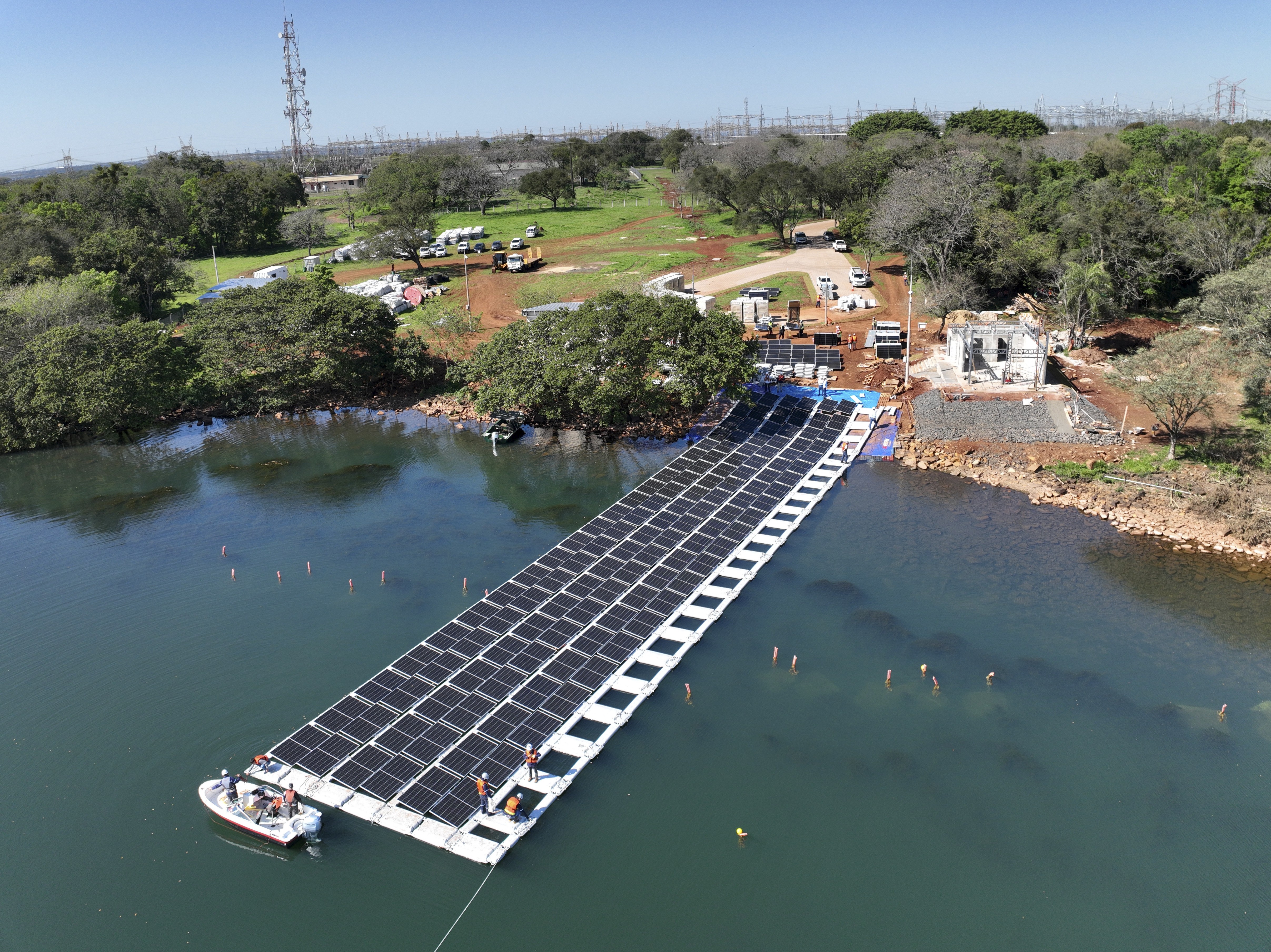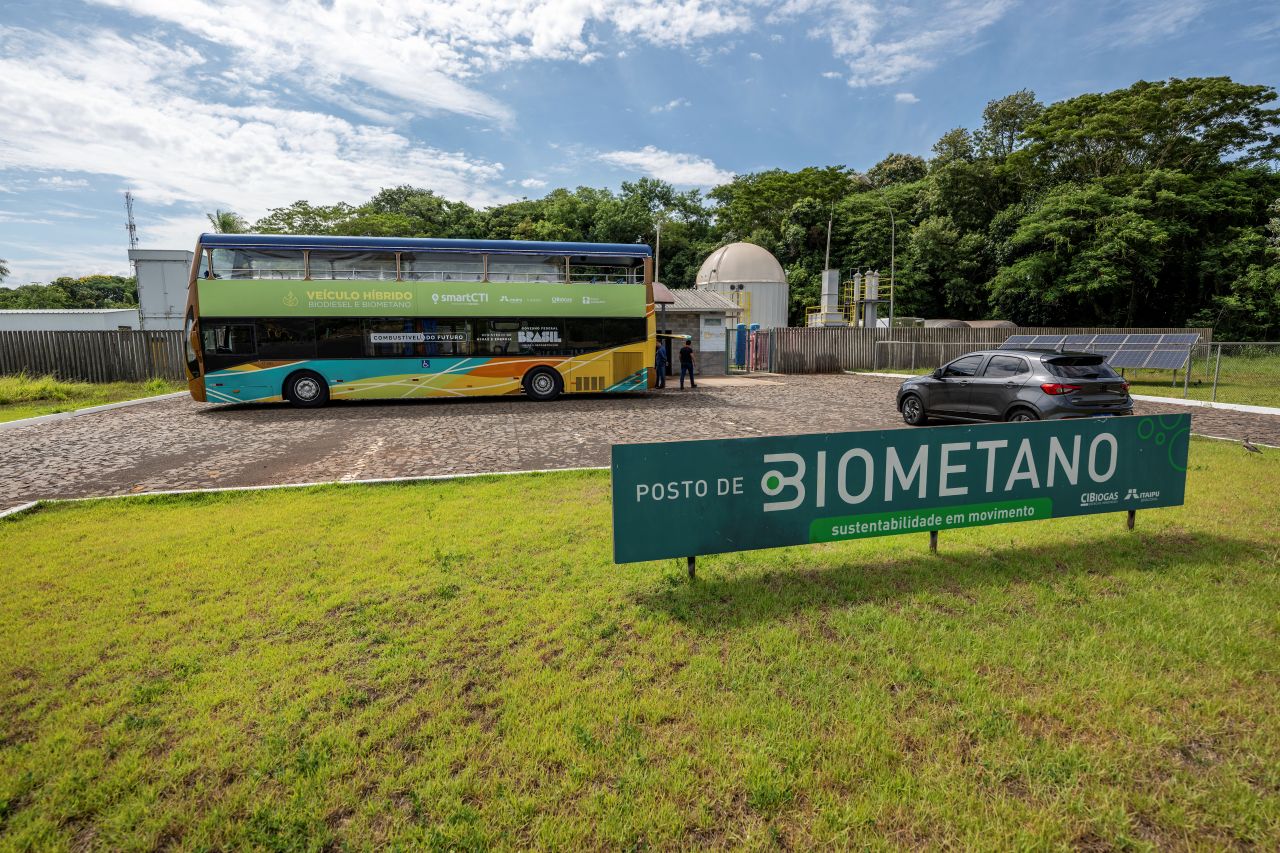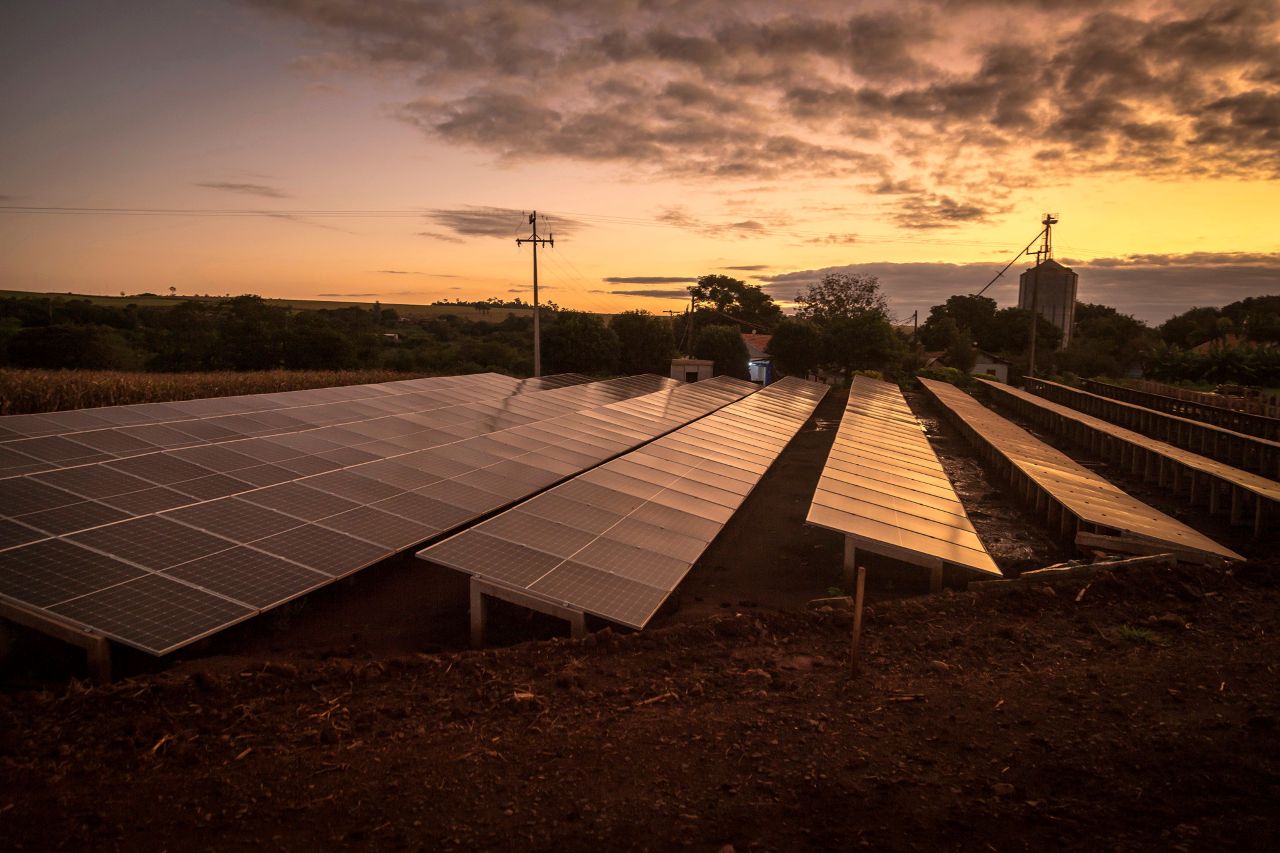Hydroelectric plant with the highest production in the country launches research into sustainable fuels and solar energy at COP30
Itaipu Binacional’s initiatives include renewable synthetic oil, floating solar energy, and biomethane produced from seized waste

With information from Itaipu Binacional
Responsible for about 8% of the electricity consumed in Brazil and 80% in Paraguay, the country’s largest hydroelectric power plant will present projects at COP30 in Belém (PA) focused on the production of sustainable fuels and solar energy. Among these initiatives are studies on the production of biogas and biomethane from seized contraband materials, research on Sustainable Aviation Fuel (SAF) and green hydrogen, a pilot floating solar power plant, and public calls promoting photovoltaic energy.
Itaipu Binacional’s actions will be highlighted in side events at the conference in November, as well as at the company’s booth located in the Green Zone.
Itaipu’s general director, Mr. Enio Verri, emphasized that all initiatives focused on green energy sources help position Brazil as global leader in the energy transition. “Itaipu is important to Brazil not only for its hydroelectric production, but also for placing the country at the forefront of global energy decarbonization. We are strongly committed to a clean and renewable energy matrix and want Brazil to hold a strategic position as a provider of low-carbon solutions,” he stated.
These initiatives are aligned with the priorities of the Brazilian presidency of COP30 and the federal government. During a meeting with representatives of the international industry at New York Climate Week, the conference president, Ambassador André Corrêa do Lago, highlighted sustainable fuels are indispensable to achieving the Net-Zero goal for greenhouse gas emissions. On the same occasion, the Secretary for Climate, Energy, and Environment of the Ministry of Foreign Affairs (Ministério das Relações Exteriores/MRE), Ambassador Maurício Lyrio, reaffirmed that promoting these technologies as solutions for hard-to-abate sectors is a top priority for Brazil.

Although Brazil’s energy matrix is already approximately 90% based on renewable sources, further decarbonization of other sectors is still required for the country to meet its NDC (Nationally Determined Contribution) targets and advance toward the goals of the Paris Agreement.
Below are some of Itaipu Binacional’s renewable energy initiatives beyond hydroelectric production:
Biogas, biomethane, and SAF: The Itaipu Biogas and Biomethane Demonstration Unit (UD) properly treats organic waste, producing biogas and conducting a series of studies on biofuels, such as biomethane and renewable synthetic oil, which are the basis for the production of Sustainable Aviation Fuel (SAF). Launched in 2017, the Itaipu DU has already treated more than 600 tons of waste seized by the Federal Revenue Service (Receita Federal), Federal Police (Polícia Federal), and the Ministry of Agriculture, Livestock, and Food Supply (Ministério da Agricultura e Pecuária/ MAPA), producing approximately 41,000 m³ of biomethane. The fuel, which has characteristics similar to natural gas, is used to supply the complex's fleet of light vehicles and the hydroelectric plant's tourist bus.
Floating solar plant: Currently implemented at the Itaipu reservoir, the project is experimental in nature and involves the installation of floating panels with an installed capacity of 1 MWp (megawatt peak). The goal is to generate clean energy for the plant's own consumption, optimize the use of the reservoir, and assess the environmental and performance impacts of this technology.

Low-carbon hydrogen: At Itaipu’s on-site research facility, studies are being conducted on the production, storage, and practical applications of green hydrogen, as well as performance tests and technical-economic feasibility assessments.
Photovoltaic energy: Itaipu publishes notices and agreements for the expansion of solar photovoltaic generation, allowing universities, municipalities, and non-profit organizations to invest in this energy source. Municipal projects currently in operation already account for an installed capacity of 42 MWp—enough to supply a city of 70,000 inhabitants.
English version: Trad. Bárbara Menezes.
Proofreading by Enrique Villamil.
